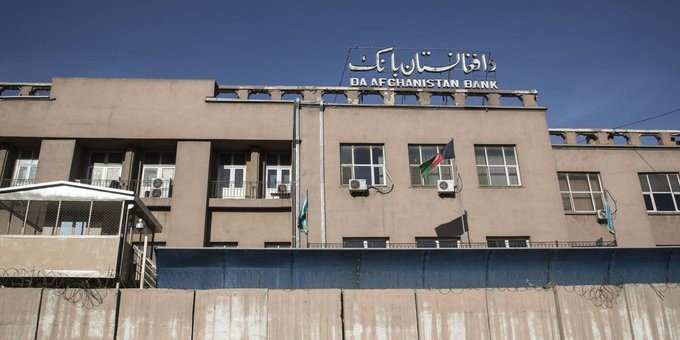The Taliban on taking over the Afghanistan Government is being met with a paucity of fund as the International Monetary Fund (IMF) suspends the country’s access to Fund resources and the U.S government freeze the Afghan government’s central bank assets in the U.S.A.
The IMF said on Wednesday that Afghanistan will not be able to access IMF resources, including a new allocation of Special Drawing Rights reserves, due to a lack of clarity over the recognition of its government after the Taliban seized control of Kabul.
“As is always the case, the IMF is guided by the views of the international community,” an IMF spokesperson said in a statement. “There is currently a lack of clarity within the international community regarding recognition of a government in Afghanistan, as a consequence of which the country cannot access SDRs or other IMF resources” – IMF spokesperson.
On 23rd August, resources of over $370mn from the IMF had been set to arrive Afghanistan. The funds were part of a global IMP response to the country’s economic crisis.
Access to the IMF’s reserves in Special Drawing Rights (SDR) assets, which can be converted to government-backed money, have also been blocked. SDRs are the IMF’s unit of exchange based on sterling, dollars, euros, yen and yuan.
- Read also; AFCON 2021 Fixtures – From Opening to Final Match
- US to offer 3rd dose of Covid-19 vaccine to all Americans whose 2nd dose was 8 months ago
The spokesperson went further to add, according to the BBC, “As is always the case, the IMF is guided by the views of the international community.”
In June, the IMF gave Afghanistan its latest loan instalment which was approved in November. In the same month, the UN published a report which stated that the “primary sources of Taliban financing remain criminal activities,” including “drug trafficking and opium poppy production, extortion, kidnapping for ransom, mineral exploitation and revenues from tax collection in areas under Taliban control or influence.”
The World Bank also funds many development projects in the country and has provided Afghanistan with $5.3bn since 2002. It has not yet responded to the BBC’s request for comment on the current status of this funding.
In recent past, the IMF has taken similar steps against other regimes not recognised by a majority of its members. This happened in April 2019 when SDR access was blocked after more than 50 member countries refused to recognise President Nicolas Maduro as the legitimate leader of Venezuela. The IMF also halted payments to Myanmar after the military junta seized control.
The head of Afghanistan’s central bank had on Wednesday 18th August tweeted about the cutting off the banks access to its assets – around $7bn of which are held at the U.S. Federal Reserve.
Ajmal Ahmady, who fled the country at the weekend, tweeted that Da Afghanistan Bank’s total reserves were approximately $9bn as of last week.
This thread is to clarify the location of DAB (Central Bank of Afghanistan) international reserves
I am writing this because I have been told Taliban are asking DAB staff about location of assets
If this is true – it is clear they urgently need to add an economist on their team
— Ajmal Ahmady (@aahmady) August 18, 2021
In the twitter thread, he went further to list out the major investment categories;
- U.S Federal Reserve = $7.0bn (U.S bills/bonds: $3.1bn, WB RAMP assets: $2.4bn, Gold: $1.2bn, Cash accounts: $0.3bn)
- International accounts = $1.3bn
- BIS = $0.7bn
The Wall Street Journal reported that the Biden administration had canceled bulk shipments of dollars headed for Afghanistan in the preceding week, as Taliban fighters were poised to take control of the capital city of Kabul.
NEW: The Biden administration last week canceled bulk shipments of dollars headed for Afghanistan as Taliban fighters were poised to take control of the capital city of Kabul@KateDavidson @IanTalley https://t.co/Thewvrsgpb
— Andrew Restuccia (@AndrewRestuccia) August 17, 2021
Afghanistan’s has a large current account deficit, and therefore reliant on obtaining physical shipments of cash every few weeks.
Without the physical shipments of cash from the U.S.A, Afghan local banks have not been able to return dollars to their customer, because DAB has not supplied banks with dollars.
Ajmal Ahmady concluded in his tweet on 18th August, many of which are already happening;
- Treasury freezes assets – already happened
- Taliban have to implement capital controls and limit dollar access
- Currency will depreciate – already happening
- Inflation will rise as currency pass through is very high
- This will hurt the poor as food price increases
Therefore, my base case would be the following:
– Treasury freezes assets
– Taliban have to implement capital controls and limit dollar access
– Currency will depreciate
– Inflation will rise as currency pass through is very high
– This will hurt the poor as food prices increase— Ajmal Ahmady (@aahmady) August 18, 2021
Nnamdi Maduakor is a Writer, Investor and Entrepreneur
